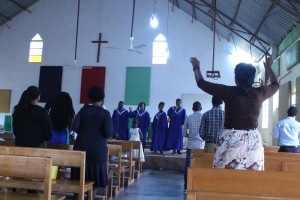US Advises Rebels to Avoid Creating Power Vacuum in Syria
The White House is advising Syrian opposition to seek not to completely dissolve President Bashar al-Assad's security and administrative apparatus after his expected ouster or killing, a mistake that the United States did in Iraq leading to further turmoil.
"You can't have a complete dissolution of that [system] because those institutions will be needed in a political transition," a U.S. official told The Associated Press on condition of anonymity.
U.S. officials have held detailed strategy sessions with rebels and opposition groups over recent weeks.
"What you need to prevent is the de-Baathification of the country," the source said, referring to Assad's ruling Arab nationalist movement. A Baath offshoot also ruled in Iraq under Saddam Hussein.
The Syrian army attacked the city of Aleppo over the weekend, responding to the threat from rebels that have made gains and the regime has faced defections. But many believe that Assad may not be able to resist the rebels and the opposition for much longer, and might surrender soon.
"We are confident that his days are numbered – that he is losing his grip on the country," Michael Hammer, the assistant secretary of state for public affairs, told reporters this week. "Momentum is clearly against him."
Syrian rebels have fought government forces in and near the capital city of Damascus over the past week, leading to violence. The 16-month conflict has killed around 20,000 people, according to estimates, and the number can rise in the coming months if Assad remains in power.
"We're seeing the rebels turn a corner," a diplomat, who also asked for anonymity, was quoted as saying. "But the fact that his days are numbered are likely to make Assad even more hard-line than before. Now he will really lash out, and Iran is backing him with everything that it has."
Even if Assad is killed or surrenders, the threat of reprisal killings may continue.
It is estimated that about 10 percent of Syria's 23 million people are Christians, another 10 percent are from the Alawite sect, a Shiite offshoot. Another 10 percent, or more, are non-Arab ethnic Kurds, who are mostly Sunni Muslim but have their own language and culture, and are seen as secular and western-oriented. The rest, about 70 percent, are largely Sunni Muslims.
While President al-Assad is an Alawite and supported by Iran as well as Lebanon's Hezbollah among other Shi'a groups, the opposition movement is aided by Saudi Arabia and dominated by the Muslim Brotherhood and Arab nationalists. Some of the groups fighting government forces are affiliated with al Qaeda, or receive support from it.
The opposition is not seen as unified and inclusive or having a clearly laid out agenda for political process that would follow Assad's ouster – one of the reasons why the U.S. has avoided military action against the Assad regime.



























